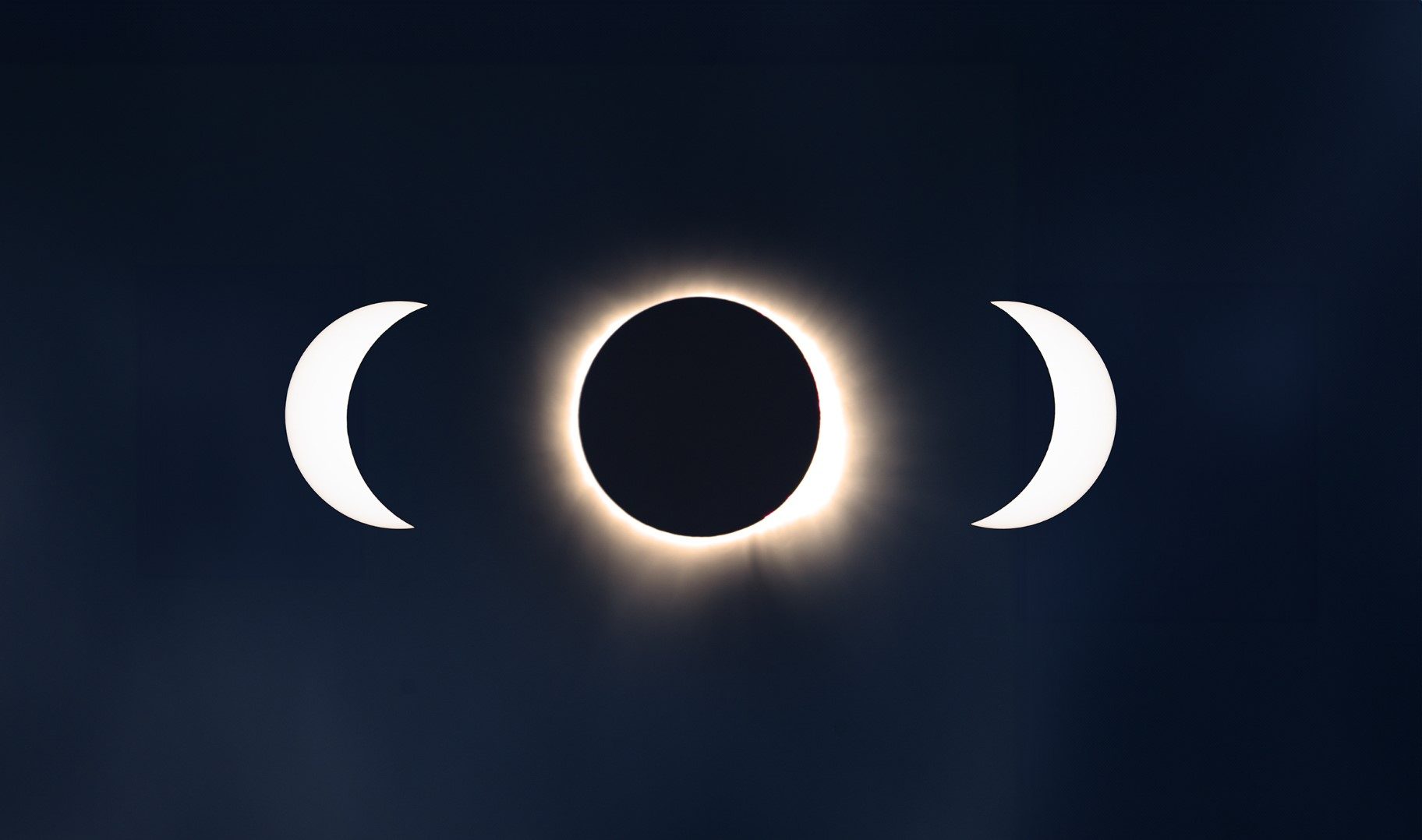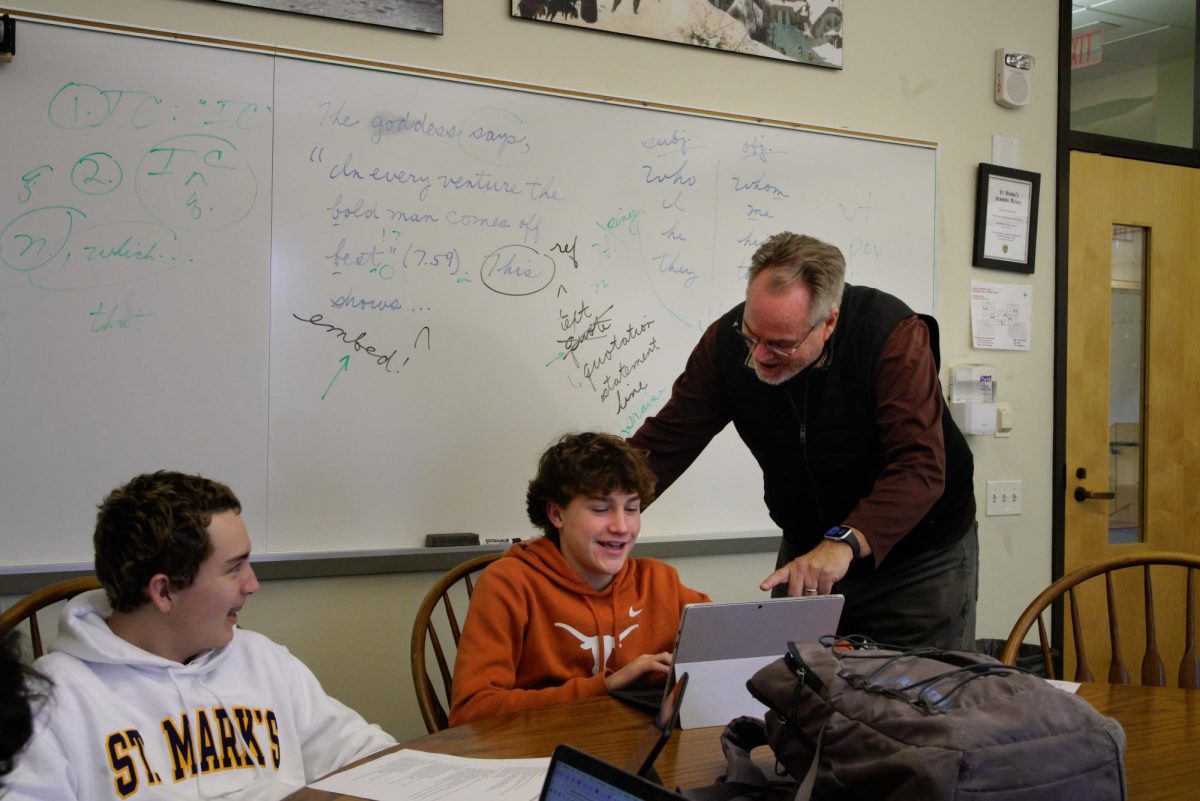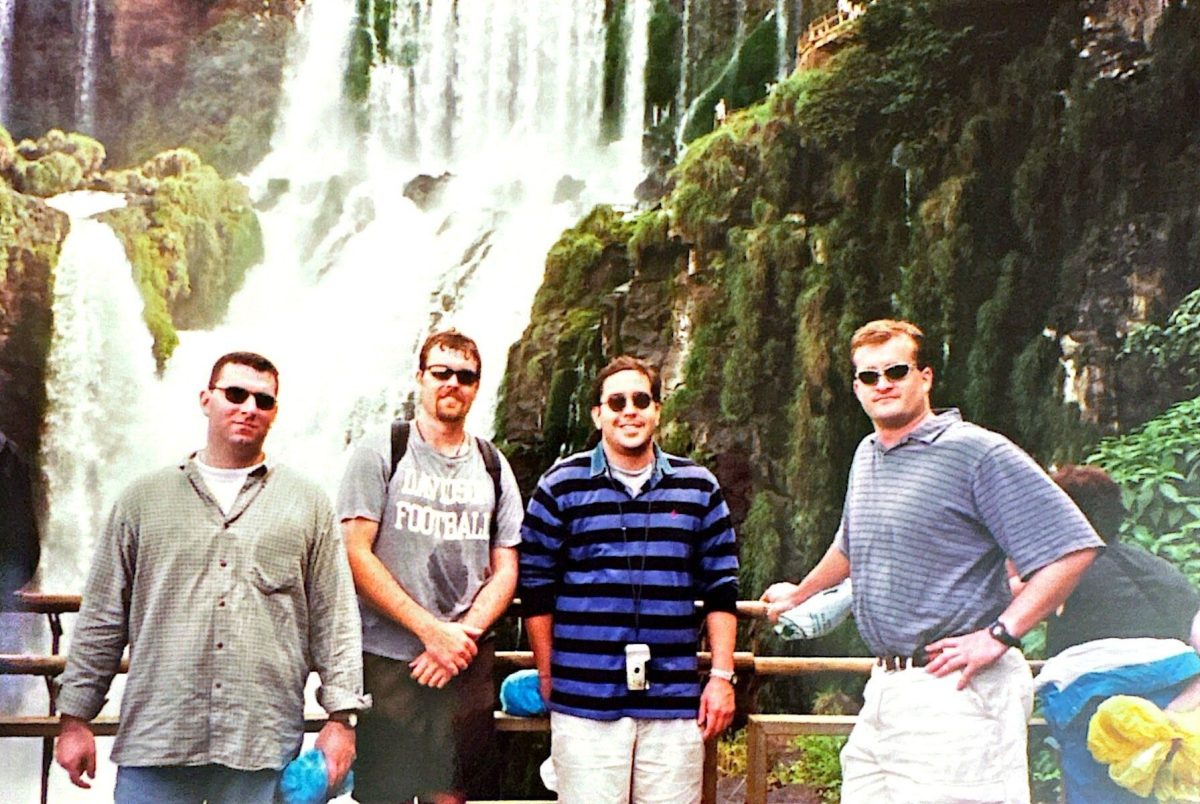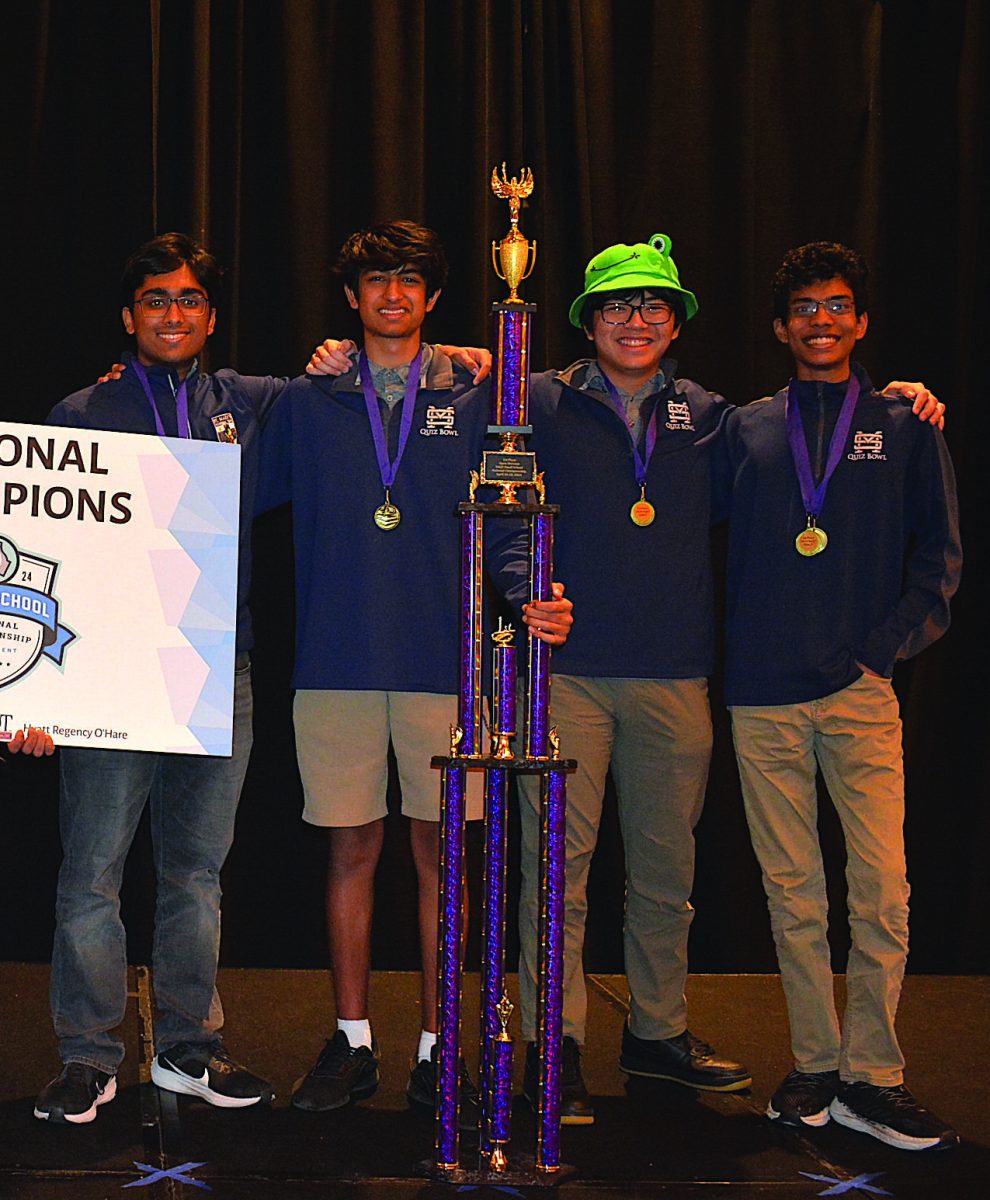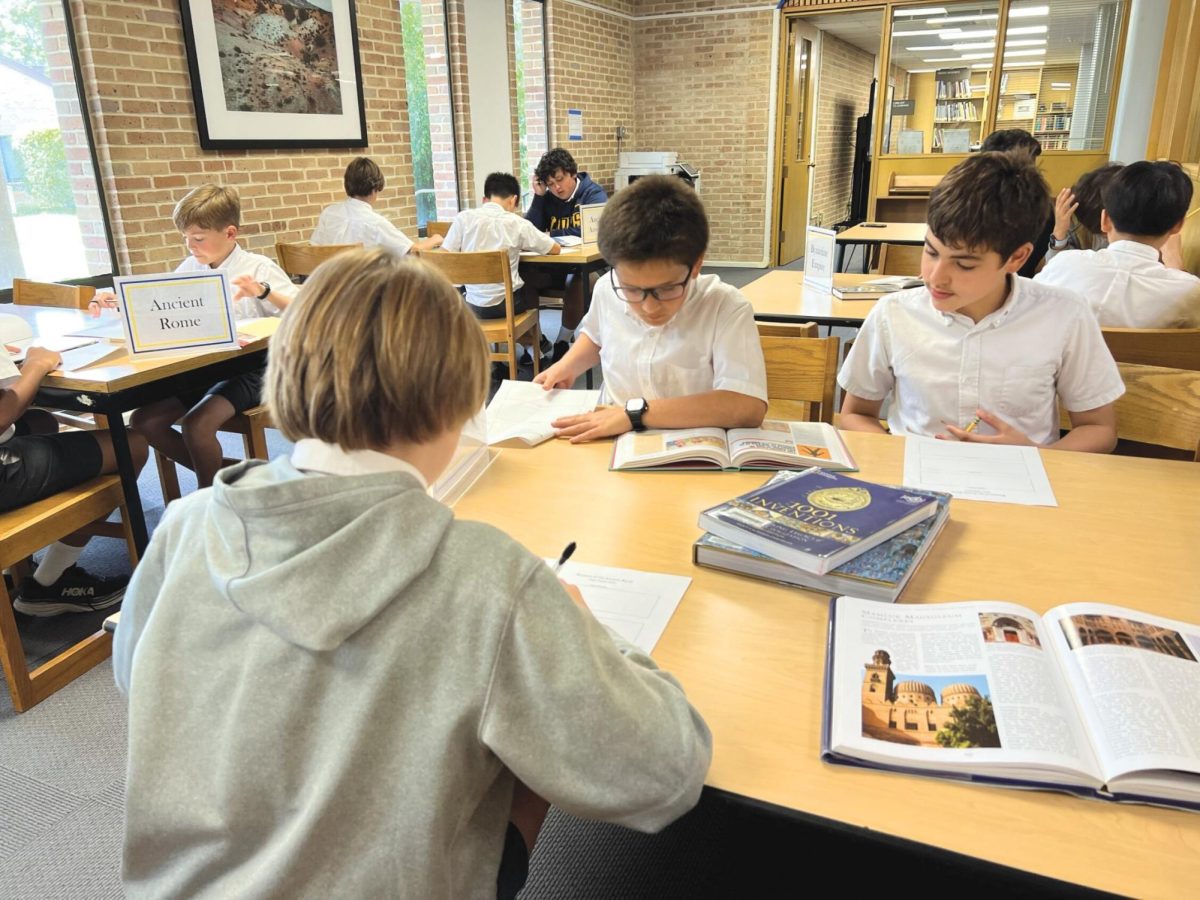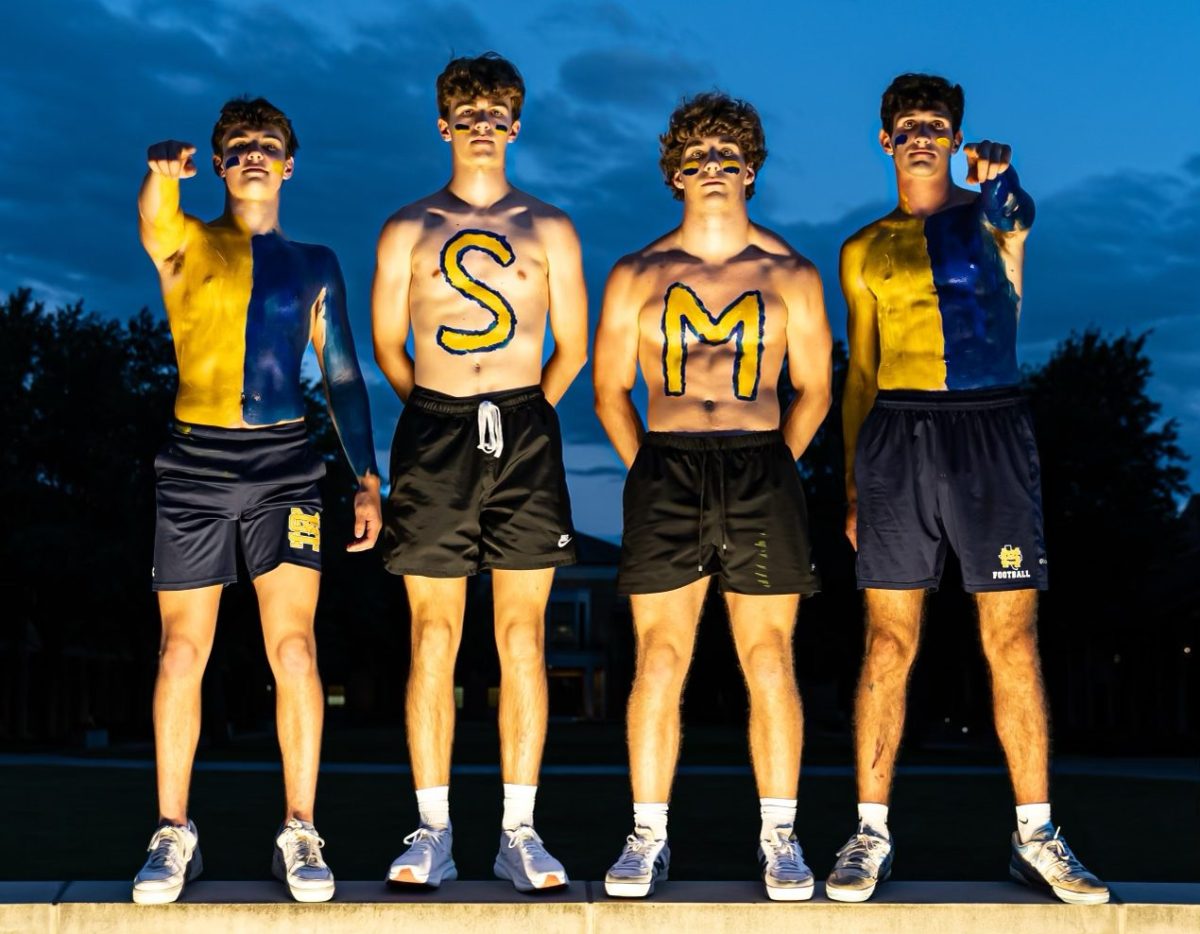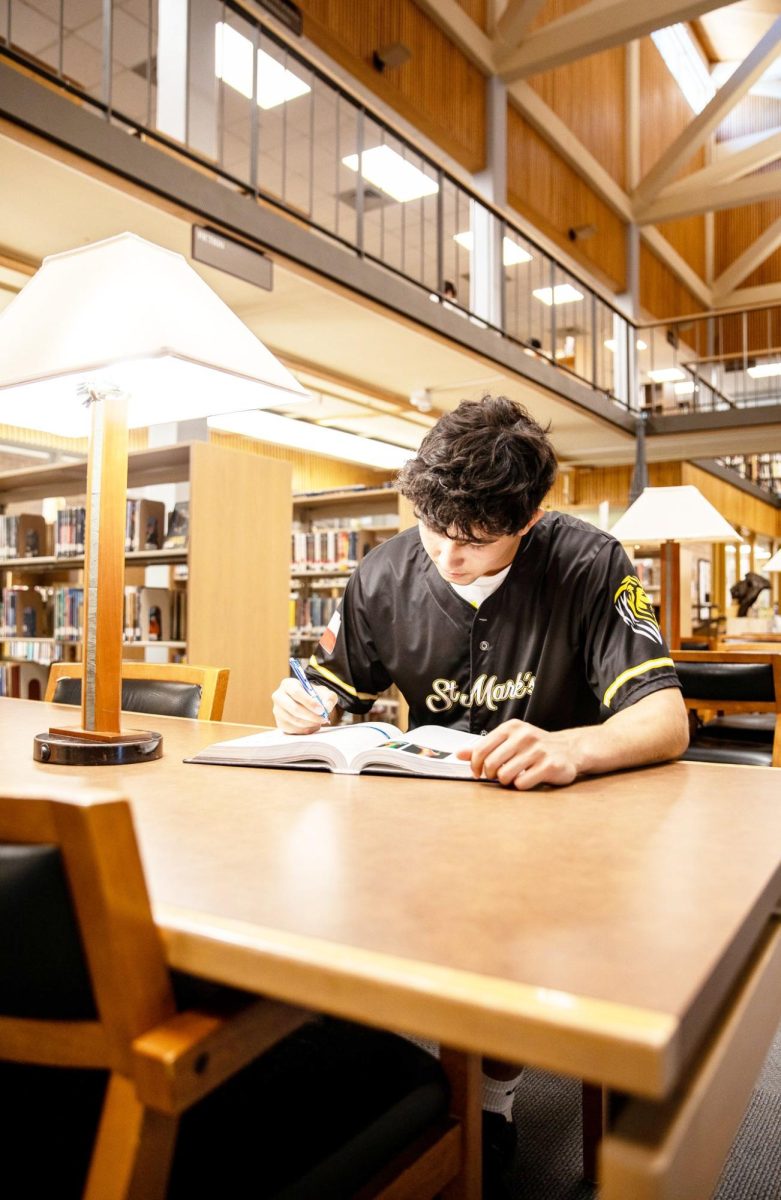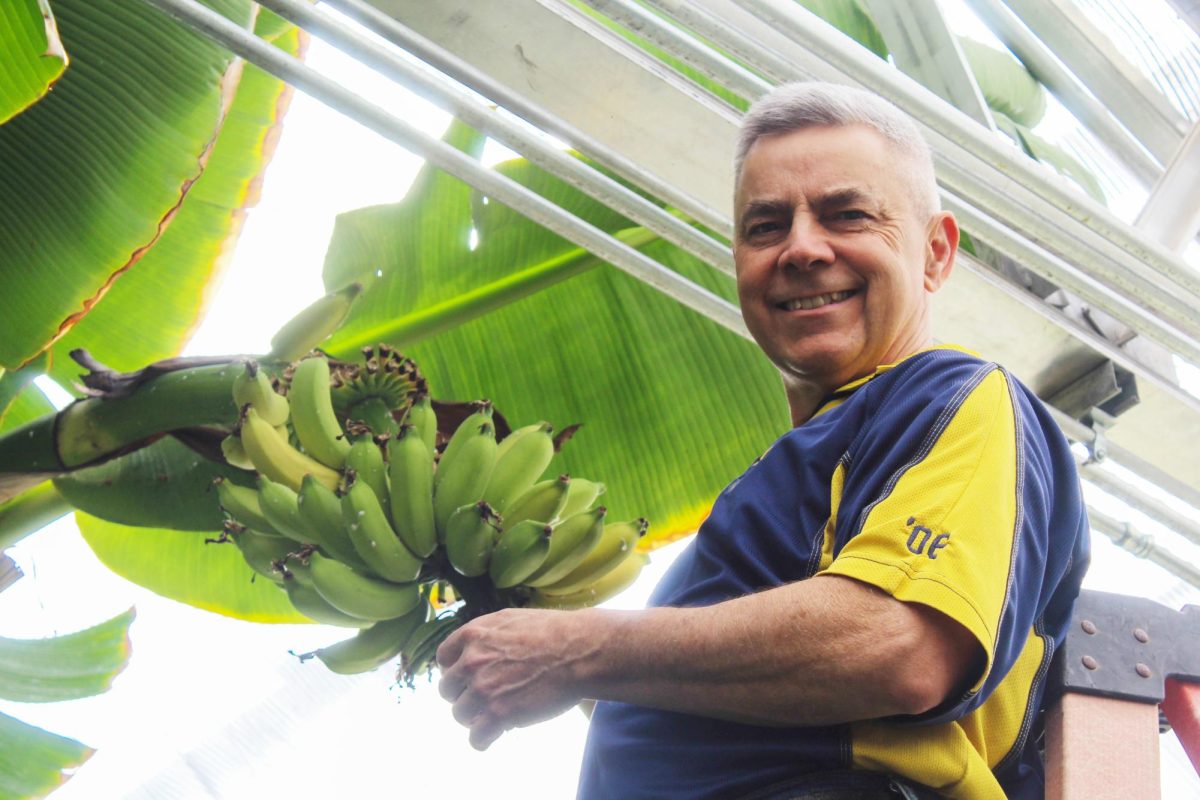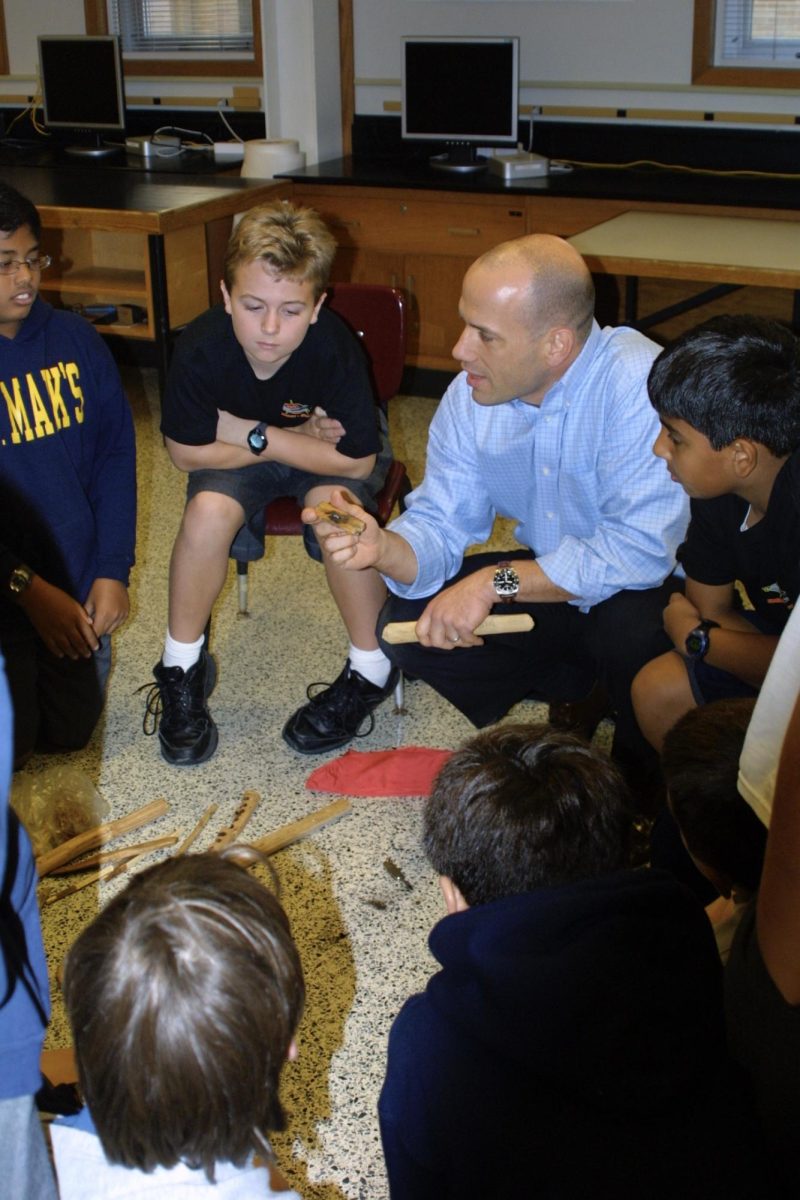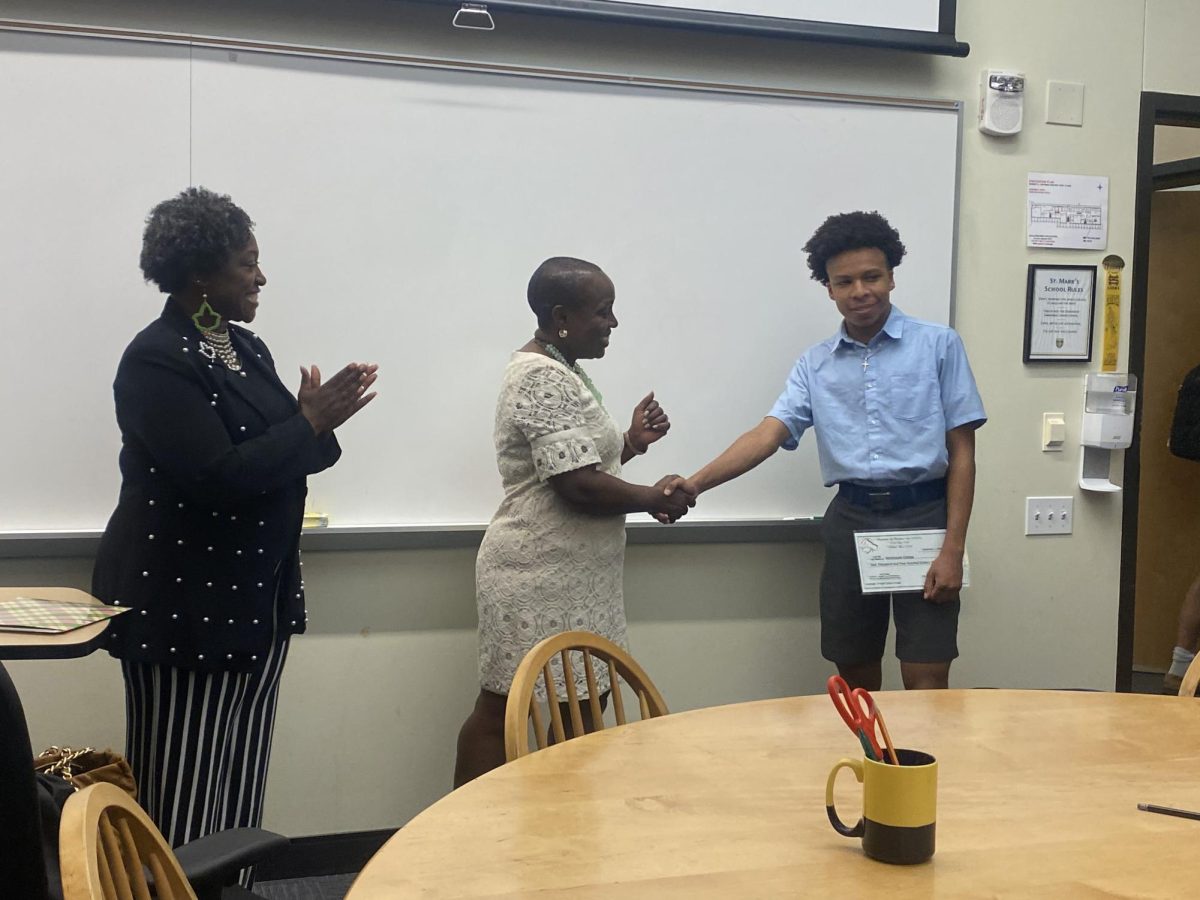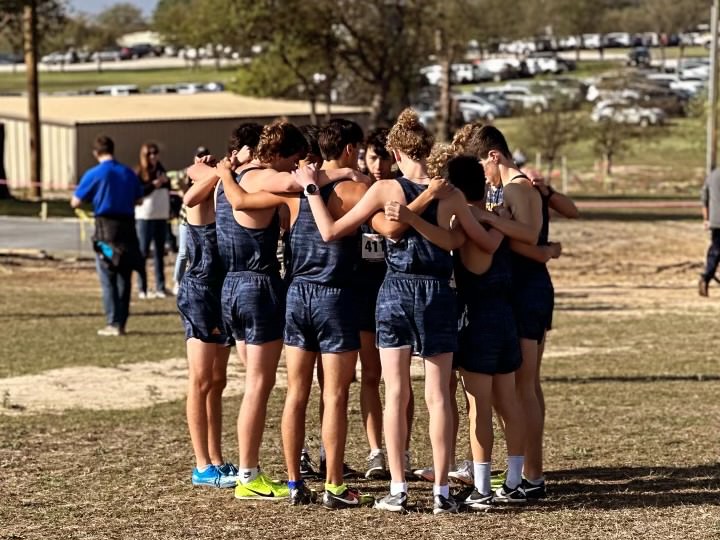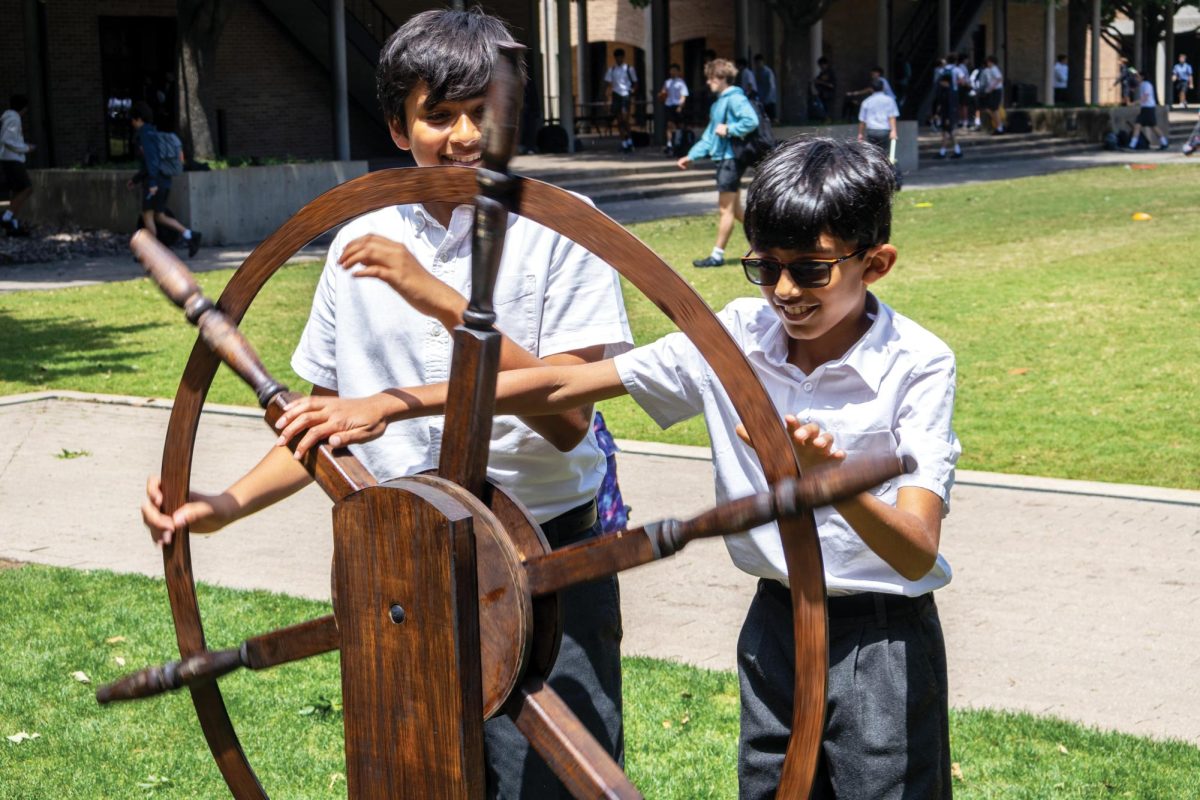A roar of excitement from more than 1,000 members of the school’s community erupted from the football field April 8 at 1:41 p.m. The much anticipated moment had finally arrived. Marksmen, young and old, collectively stared into the sky with childlike awe and excitement during the few precious minutes of totality during the solar eclipse.
This event is one of the rarest natural phenomena to witness, for it requires the moon’s orbit to come in front of the sun, blocking the sunlight and essentially creating a few minutes of darkness during the day. At the school, the community was even more fortunate to witness a total solar eclipse, where the moon blocks 100 percent of sunlight and only leaves the sun’s corona exposed, helping create the feeling of night during the day,
Dr. Michael Lane, Science Teacher, Director of the Planetarium and Leonard N. “Doc” Nelson Alumni Master Teaching Chair, had been waiting his whole life to view an eclipse. He had been giving presentations to all Middle and Upper school students and faculty for weeks before the eclipse, to ensure that all members of the community would be prepared to fully enjoy the experience.
“When the eclipse reached totality and that little part of the clouds that opened up, my heart was racing,” Lane said. “I was like, ‘oh my God’, this is going to actually happen. I was sitting amongst the eighth graders, and we were all just getting so excited that this was going to happen and there’s just the spontaneous kind of cheering and excitement.”
For Lane, the excitement and joy of the moment was definitely best shared with others of the community. Sharing this special moment with all his students and colleagues was an incredible experience for him.
“Seeing students excited about this event, and excited about science was really rewarding for me,” Lane said. “Also, just the joy that everybody felt was just tremendous and people were in such a good mood for the rest of the day.”
In addition to having all current marksmen attend the eclipse, over 200 alumni came back to campus for the day to watch the spectacle. Ahlberg & Ribman Family Director of Alumni Relations Jack Mallick ‘14 helped to organize this event and ensure that it ran smoothly.
“Initially, we heard from several marksmen who had been students of Stephen M. Seay ‘68, a longtime teacher in the science department who used to tell his earth science classes that there would be a total solar eclipse on April 8, 2024, and they should watch the event as a community,” Mallick said. “As the year went on, we started to hear from lots of alums that they had the event marked on their calendars because of Mr. Seay, and we decided to partner with the science department and put on a program for the community.”
For Mallick, having over 200 alumni choose to come back and view the eclipse at the school serves as a testament to the school’s powerful community. Additionally, all the alumni who returned just to fulfill Mr. Seay’s request that they view the eclipse as a community was another very special part of the experience for Mallick. To help ensure that all the alumni were prepared, he partnered with Director of Environmental Studies Dan Northcut ‘81 to help put on a presentation for alumni about Mr. Seay and to come and learn a bit about the eclipse before the actual event.
While the experience was great for alumni and faculty, the event was mainly set up for the student’s enjoyment. Special telescopes and boxes that allowed crescent shaped shadows to pass through were set up around the football field to aid the experience as well. For sophomore Dilan Kognati, the uniqueness of the eclipse was something that he truly enjoyed.
“I liked that we were able to see this once in a lifetime opportunity, despite the fact that clouds almost did not permit it,” Koganti said. “It was great that we were able to see it at the very end, and that was truly one of the greatest things I’ve ever seen in my life.”
